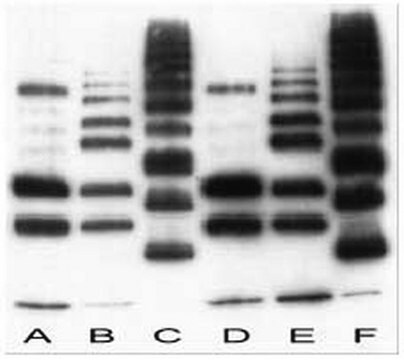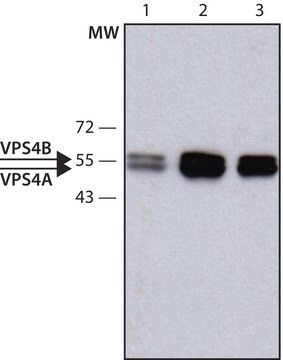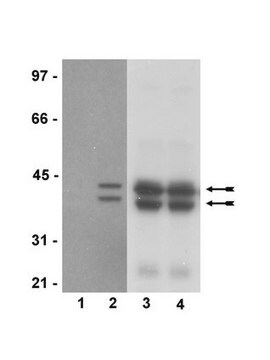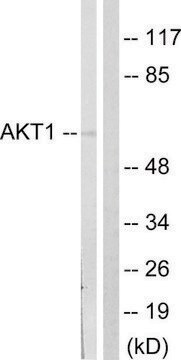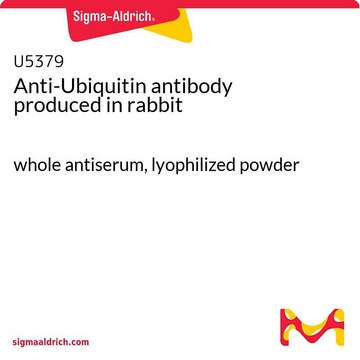MABC83
Przeciwciało anty-Vps4/SKD1, klon 5E6.1
clone 5E6.1, from mouse
Synonim(y):
Vacuolar protein sorting-associated protein 4B, Cell migration-inducing gene 1 protein, Suppressor of K(+) transport growth defect 1, Protein SKD1
About This Item
Polecane produkty
pochodzenie biologiczne
mouse
Poziom jakości
forma przeciwciała
purified immunoglobulin
rodzaj przeciwciała
primary antibodies
klon
5E6.1, monoclonal
reaktywność gatunkowa
mouse, human
metody
immunocytochemistry: suitable
western blot: suitable
izotyp
IgG1κ
numer dostępu NCBI
numer dostępu UniProt
Warunki transportu
wet ice
docelowa modyfikacja potranslacyjna
unmodified
informacje o genach
human ... VPS4B(9525)
Opis ogólny
Immunogen
Zastosowanie
Apoptosis & Cancer
Cell Cycle, DNA Replication & Repair
Jakość
Western Blot Analysis: 1 µg/mL of this antibody detected Vps4/SKD1 in 10 µg of human skeletal muscle tissue lysate.
Opis wartości docelowych
Postać fizyczna
Przechowywanie i stabilność
Komentarz do analizy
Lizat tkanki mięśni szkieletowych człowieka.
Inne uwagi
Oświadczenie o zrzeczeniu się odpowiedzialności
Nie możesz znaleźć właściwego produktu?
Wypróbuj nasz Narzędzie selektora produktów.
Kod klasy składowania
12 - Non Combustible Liquids
Klasa zagrożenia wodnego (WGK)
WGK 1
Temperatura zapłonu (°F)
Not applicable
Temperatura zapłonu (°C)
Not applicable
Certyfikaty analizy (CoA)
Poszukaj Certyfikaty analizy (CoA), wpisując numer partii/serii produktów. Numery serii i partii można znaleźć na etykiecie produktu po słowach „seria” lub „partia”.
Masz już ten produkt?
Dokumenty związane z niedawno zakupionymi produktami zostały zamieszczone w Bibliotece dokumentów.
Nasz zespół naukowców ma doświadczenie we wszystkich obszarach badań, w tym w naukach przyrodniczych, materiałoznawstwie, syntezie chemicznej, chromatografii, analityce i wielu innych dziedzinach.
Skontaktuj się z zespołem ds. pomocy technicznej